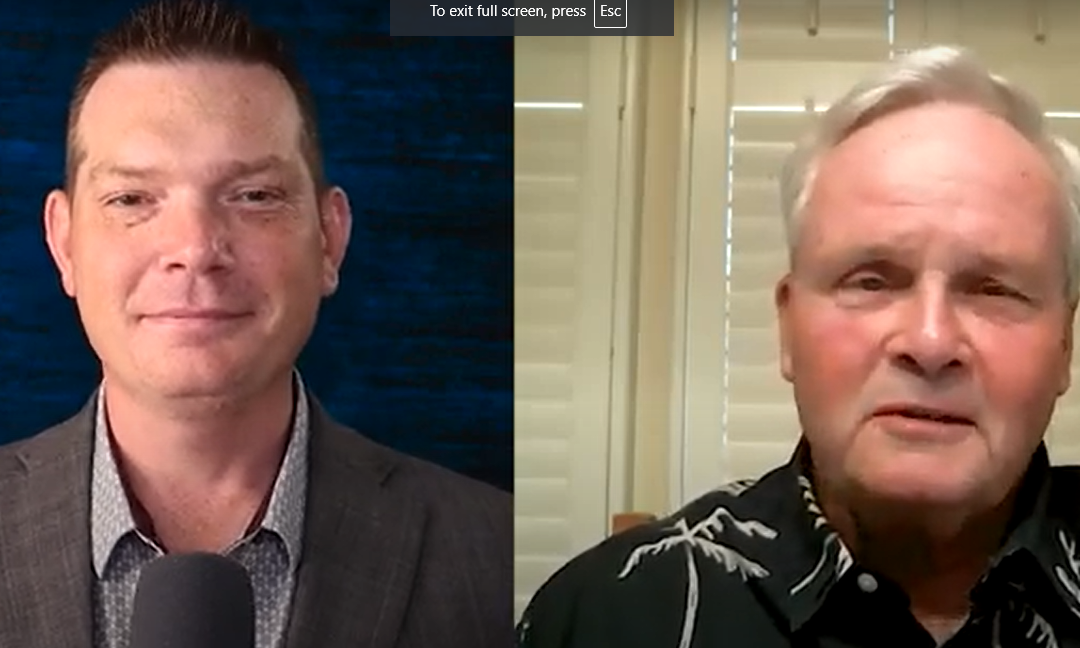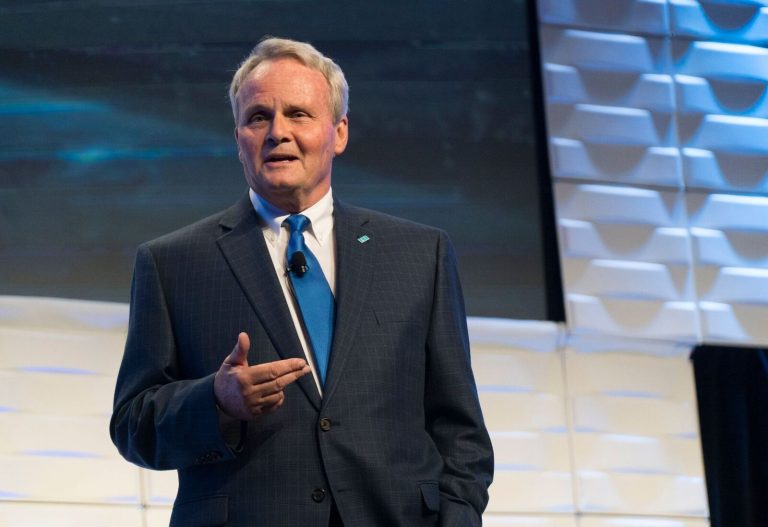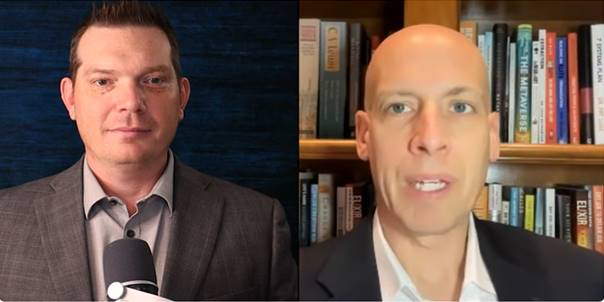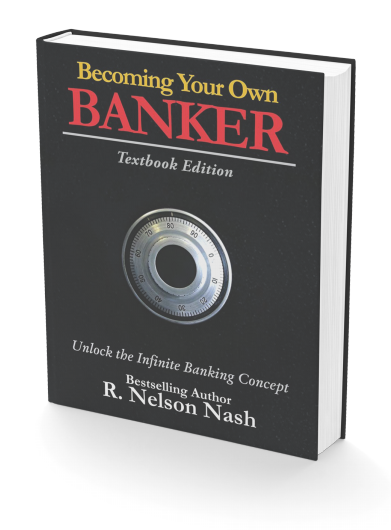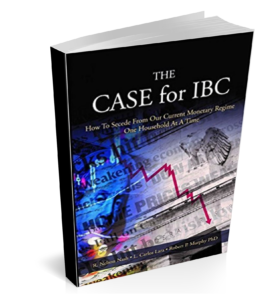Success in business and life comes down to making smart choices, staying true to your values, and understanding what drives real growth.
As I talk with Lawrence Reed, former president of the Foundation for Economic Education (FEE), he explains how character and economic freedom go hand in hand.
Lawrence shows how strong values and a commitment to liberty create opportunities, especially for entrepreneurs who want to build lasting wealth and make a difference.
His insights, from leading FEE through financial challenges to inspiring the next generation, reveal simple but powerful strategies that anyone can use.
If you’re ready to grow your wealth, strengthen your leadership, and take control of your future, this conversation is packed with lessons you won’t want to miss.
Leading Through Crisis: The Power of Teamwork and Vision in Overcoming Challenges
I first met Lawrence when my mentor, the late R. Nelson Nash, invited him to speak at an event hosted by the Nelson Nash Institute.
Lawrence spoke passionately about the importance of character and how individuals of integrity shape the world. This made me see the deep connection between economic liberty and personal character for the first time.
That night was also my introduction to the Foundation for Economic Education. Nelson Nash, a longtime supporter of FEE, often praised the organization for promoting free enterprise and personal autonomy while advocating for reduced government regulation. I began to understand the role organizations like FEE play in advancing these principles.
Lawrence’s leadership at FEE came at a critical moment, as he took charge during a challenging time in 2008.
FEE was facing financial instability amidst the global economic crisis. Lawrence took on the task of restructuring the organization, and despite the uncertainty, he believed success came down to assembling the right team and having a clear strategic plan.
One of his first steps was to rebuild FEE’s support base, working with donors, many of whom he didn’t know personally, and securing new supporters.
This was especially challenging during a recession, but Lawrence and his team managed to turn FEE’s financial situation around, moving from a million-dollar deficit to a positive balance within a few years.
Lawrence credits his staff and board for FEE’s recovery but emphasizes the importance of a strong team from the start.
It’s not just about financial cuts or restructuring—it’s about empowering people, building confidence, and moving forward with a purpose. His story highlights the power of leadership in times of crisis: the right team, a shared vision, and a solid plan can make all the difference. Success is built on the strength of others.
How FEE Inspires the Next Generation to Embrace Freedom
FEE began in 1946, and it was started by a man named Leonard Read. Leonard saw that after World War II, many people thought big government had saved the world. But Leonard believed the government had caused big problems, too. He wanted to remind people about the importance of freedom, private property, and small government.
At first, FEE was one of the only groups talking about these ideas. Over time, more groups joined the cause, which was good—but it also meant FEE needed to find its own special focus.
Lawrence explains that by 2008, FEE decided to focus on teaching young people about freedom. “It’s not the same to talk to a 60-year-old as it is to talk to a 16-year-old,” he says.
Now, FEE works with high school and college students, especially those aged 14 to 24, who are just starting to learn about these ideas. Lawrence says they want to reach students who may have only heard bits and pieces about freedom or maybe nothing at all. FEE’s job is to inspire them and teach them the basics of liberty in a way they can understand.
As I listen, I think back to my own life during 2008. At that time, I was dealing with challenges in real estate in Canada while watching the financial crisis unfold in the U.S. Even though it was different in Canada, the problems still affected us.
Hearing Lawrence talk about how FEE found a new direction during that time reminds me of how important it is to adapt and stay focused when things get tough.
How Government Actions Hurt Innovation and Create Economic Problems
The boom-bust cycle occurs when the government interferes in the economy. In a free market, businesses fail due to poor decisions, but when many fail at once, something bigger is wrong. Lawrence explains that booms happen when the government injects too much money, often by lowering interest rates or issuing too many loans.
This causes poor decisions, leading to a crash.
Governments have two choices when the crash happens:
1. Admit their mistakes and stop interfering.
2. Double down on the same policies, worsening the problem.
Unfortunately, they often choose the second option, which prolongs the cycle. Understanding that government interference is the root cause helps us avoid expecting it to fix the problem.
Innovation drives economic progress, but government regulations and taxes hinder it.
Lawrence recalls how the Great Depression’s extreme tax rates discouraged innovation. “Why would anyone risk their time and money if the government takes all their earnings?” he asks.
Today, restrictive policies in Canada push entrepreneurs to other countries. “Money goes where it’s well respected,” I note.
Lawrence shares the story of Frederick Tudor, who shipped ice from Massachusetts to the Caribbean in the 1820s. Despite early failures, he succeeded. “Only in America could you fail a few times and still succeed,” Lawrence says. This shows that freedom fosters innovation. When entrepreneurs are free to risk and reward their efforts, economies thrive.
The Blinking Lights Award: A Sign of Hope and Freedom
Hope for a better future often comes from people who don’t give up, even when things are hard.
The Blinking Lights Award celebrates those who fight for freedom even when life is tough.
Lawrence tells the story of the Romaszewski couple in Poland, who secretly shared messages of hope and freedom during the communist regime. Sophia Romaszewski remembered, “We wondered how we’d know if people were listening. One night, we asked people to blink their lights if they believed in liberty for Poland—and for hours, all of Warsaw was blinking.”
This powerful moment inspired the Blinking Lights Award, which honours people who continue to fight for freedom despite the risks.
Lawrence explains how the award has been given to many brave people who have stood up for what is right.
One of these people was my mentor, Nelson Nash. Although Nelson didn’t live under a strict government, he still took on powerful groups that didn’t support his ideas. “Nelson didn’t live under a dictatorship,” Lawrence says, “but he took on a big part of the financial world to fight for ideas that needed to be heard.”
Nelson’s work, especially his idea of the Infinite Banking Concept®, helped people take control of their own money and strengthen their financial lives.
He combined his knowledge of money and insurance to teach people how to manage their finances in a way that gave them freedom, even when the economy seemed unfair. Lawrence adds, “It’s not just a theory—it’s something people can actually do to help themselves.”
The Blinking Lights Award honours people like Nelson Nash, who bravely fight for freedom and teach others to do the same. Their hard work and dedication inspire others to take control of their lives and build a better, freer world.
The Power of Innovation and Global Collaboration
Economic liberty allows us to control our financial futures, even in a world where we don’t face overt tyranny.
Lawrence uses the example of the pencil to illustrate how free markets work. Leonard Reed’s essay, I, Pencil, shows how something as simple as a pencil is the result of countless people working together from all over the world without even knowing each other.
Lawrence explains that products like pencils aren’t created by a single person or government decree but by free individuals taking opportunities to create and collaborate. “The creation of a pencil happens because free people decide to make it,” he says.
Each step in the process involves a different skill, from mining the graphite to shaping the wood, and no one person can do it all. Yet pencils are everywhere—this is the magic of the market.
I emphasize how crucial it is to protect your ideas. If you have an idea, think about how you can bring it to life and who can help. For example, in my podcast with Kary Oberbrunner, he explained how he created blockchain technology to protect intellectual property.
Just as the U.S. Patent Office helps protect inventions, there are ways to ensure your ideas are safeguarded for success.
This global network of collaboration and protection is what makes innovation possible, whether it’s for something as simple as a pencil or as complex as an airplane. Economic liberty is the foundation that allows ideas to grow and thrive.
Final Thoughts: The Inseparable Link Between Liberty and Character
As Lawrence shares, liberty and character are inseparable. Without liberty, we can’t truly understand our character. Only through the freedom to make choices can we reveal who we are.
Conversely, without strong character, liberty becomes unmanageable. People lacking integrity, responsibility, or courage will not be able to maintain or enjoy freedom. Chaos will follow, and a strong leader will step in, taking away liberties in the name of order.
Lawrence reminds us that liberty is rare and precious. Throughout history, most people have lived under some form of tyranny, whether as serfs, slaves, or in constant fear of political power. Liberty is not guaranteed—it can be lost if people forget its value.
As President Reagan famously said, “We’re just one generation away from the extinction of liberty.”
I emphasize that we must constantly commit to preserving liberty, as its loss would make life unthinkable. Lawrence paints a vivid picture of life in North Korea, where every action is controlled, and personal freedom is a distant dream. There, you live at the whim of another rather than living your own life.
As challenging as liberty can be at times, with its uncertainties and mistakes, the alternative—being controlled and living under someone else’s rule—should be even less appealing.
We must remember that our lives lose their true meaning and purpose without liberty.
Key Takeaways
– Lead with Purpose: Build strong teams and lead with vision, especially during tough times.
– Empower the Next Generation: Teach young people the value of economic freedom and personal responsibility.
– Understand Economic Cycles: Recognize the impact of government intervention and focus on free-market principles.
– Foster Innovation: Create an environment where entrepreneurs can thrive, free from excessive regulation.
– Stand Up for Principles: Like the Blinking Lights Award recipients, fight for freedom, even when difficult.
Want to discover how to take control of your financial future? Check out LearnIBC.com.

